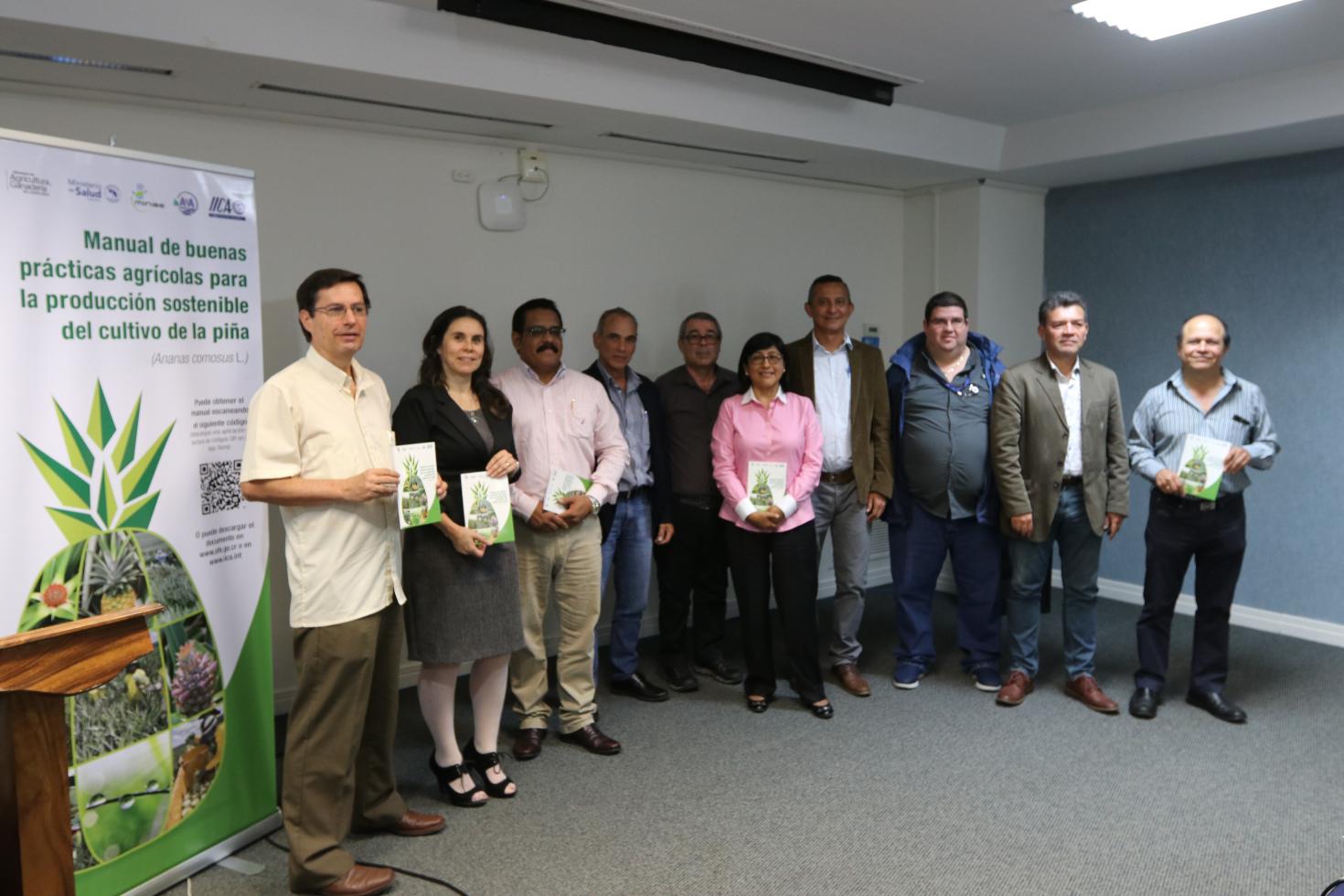The document, which compiles good pineapple production practices, was jointly developed by the country’s ministries of Agriculture, the Environment and Health, with support from IICA.

San Jose, XX August 2019 (IICA) – The Costa Rican pineapple industry will benefit from a new tool that fosters the comprehensive development of this activity by guaranteeing conditions that are conducive to safety, sustainability and competitiveness.
The Manual for Sustainable Pineapple Production, presented at the Headquarters of the Inter-American Institute for Cooperation on Agriculture (IICA), compiles technical provisions and good practices to effectively manage sanitary, phytosanitary and environmental risks, with the aim of striking a balance between production and the conservation of natural resources.
The ministries of Agriculture and Livestock, the Environment and Energy, and Health of Costa Rica participated in the launch event and agreed that the manual is a great example of political will and coordination between institutions for the benefit of the country.
“This manual will enable us to remain competitive in markets that have become increasingly demanding with respect to the social and environmental conditions in which food is produced,” stated Carlos Manuel Rodríguez, Minister of the Environment and Energy.
On the other hand, Renato Alvarado, Minister of Agriculture and Livestock, stated that “we have a need to make farms more efficient, as well as to drive soil recovery. To this end, teamwork is crucial.”
“The application of this manual will not only benefit production, but also boost health in communities that carry out pineapple monocrop farming. This industry must achieve the highest production standards without affecting the environment, work and health,” stated Daniel Salas, Minister of Health.
The application of this manual will be compulsory for pineapple producers, and will enable the country to offer safe and healthy products for domestic consumption and export, while protecting consumer health and water sources, as well as broadening market access.
The regulations emphasize quality assurance and risk management at all stages, from the selection of the farming land, until the fruit is delivered to the processing plant.
Costa Rica is categorized as the world’s leading pineapple producer. The country dedicates 47% of its land surface to agricultural activities.
Recommendations made by the Ministry of Labor and Social Security, the water resources regulatory authority, private companies and IICA were also taken into account for the development of the document.
Video: Statements by the Ministers of Agriculture, Environment and Health. (Spanish only)
More information:
Sacha Trelles, Technical Coordinator of the IICA Delegation in Costa Rica











